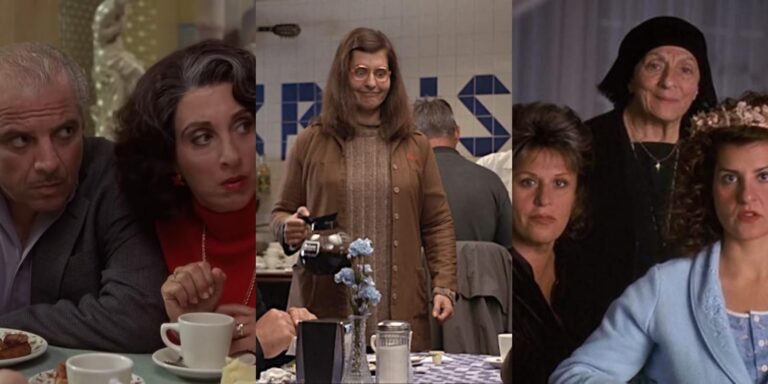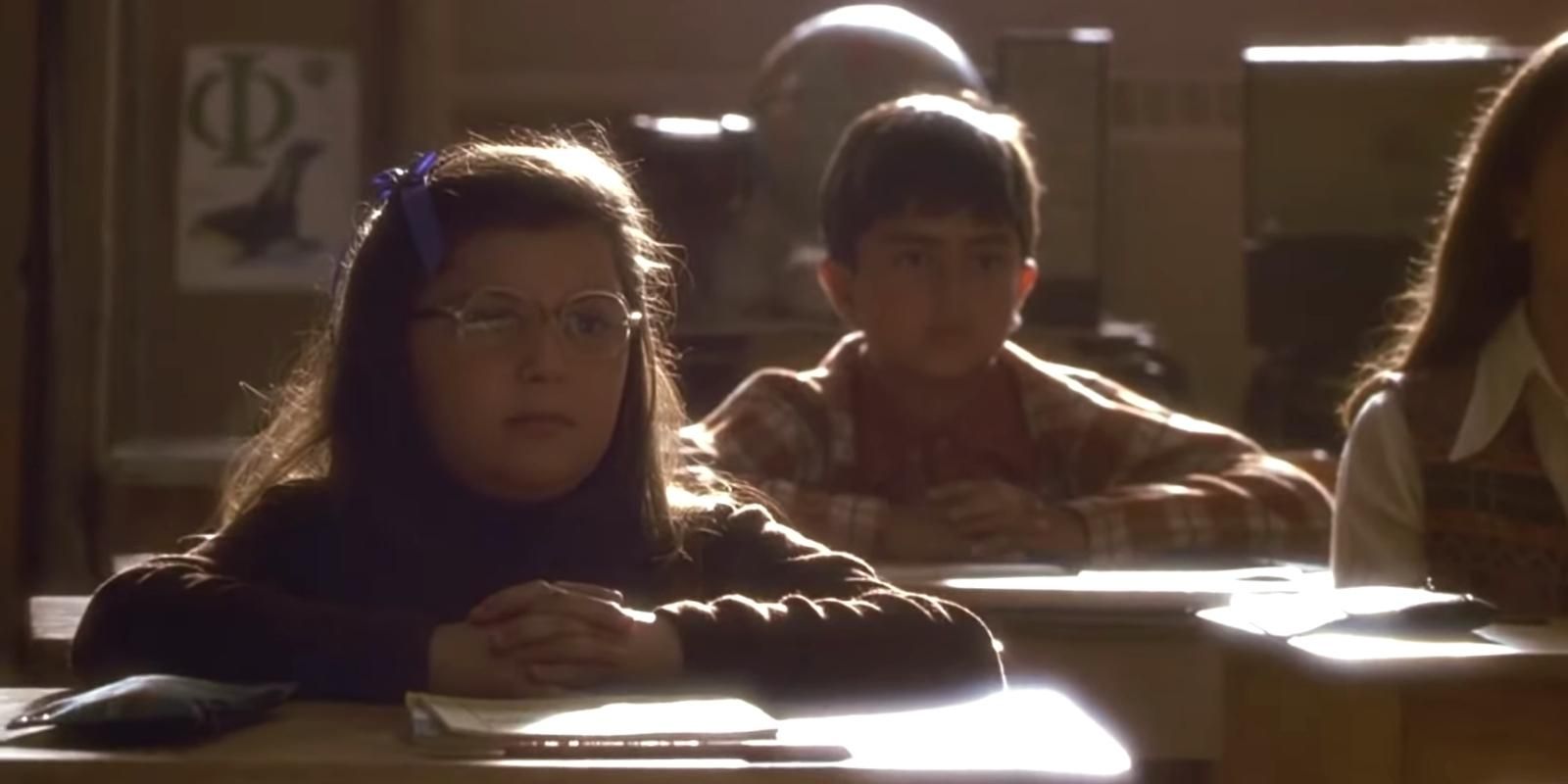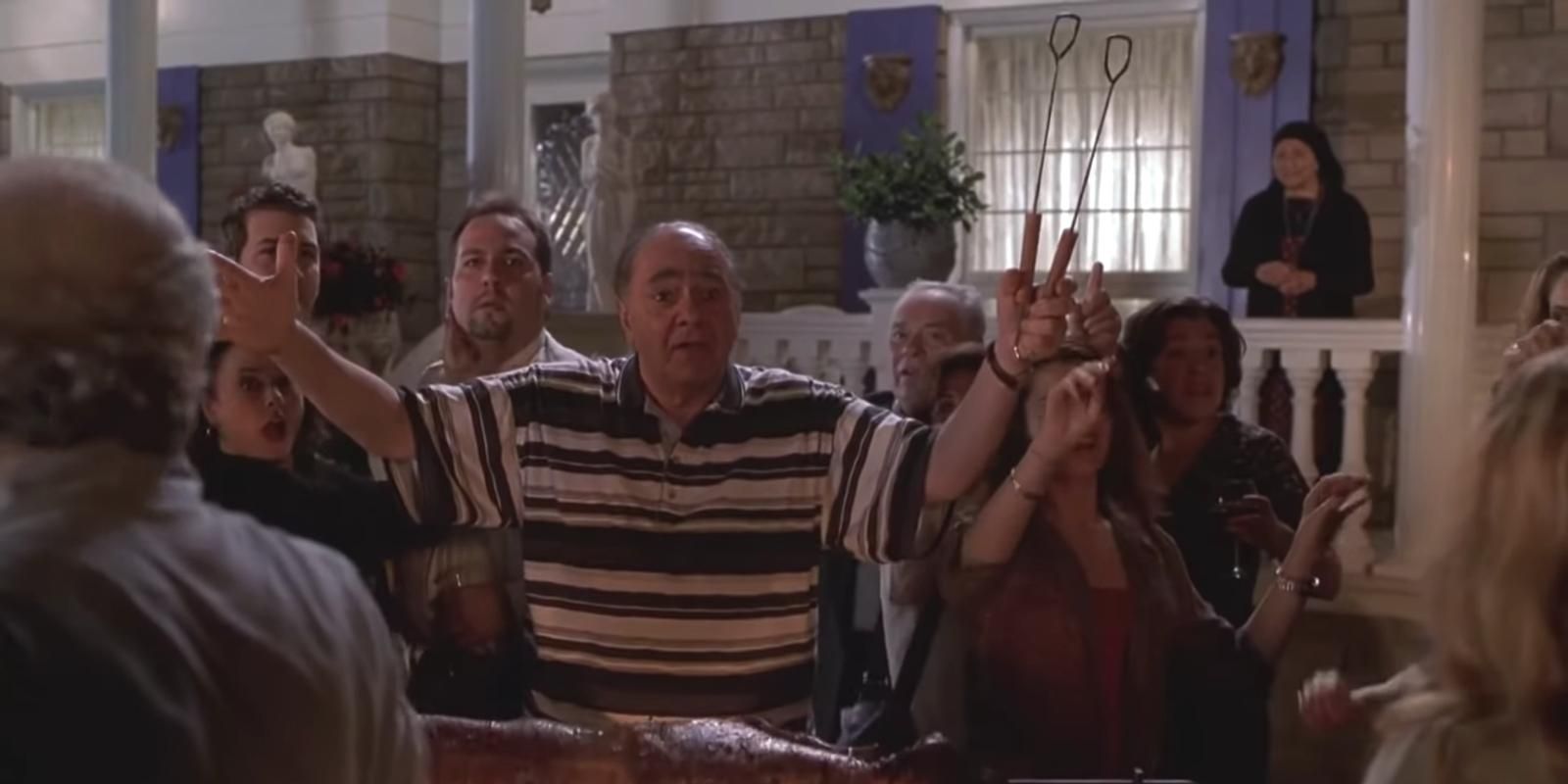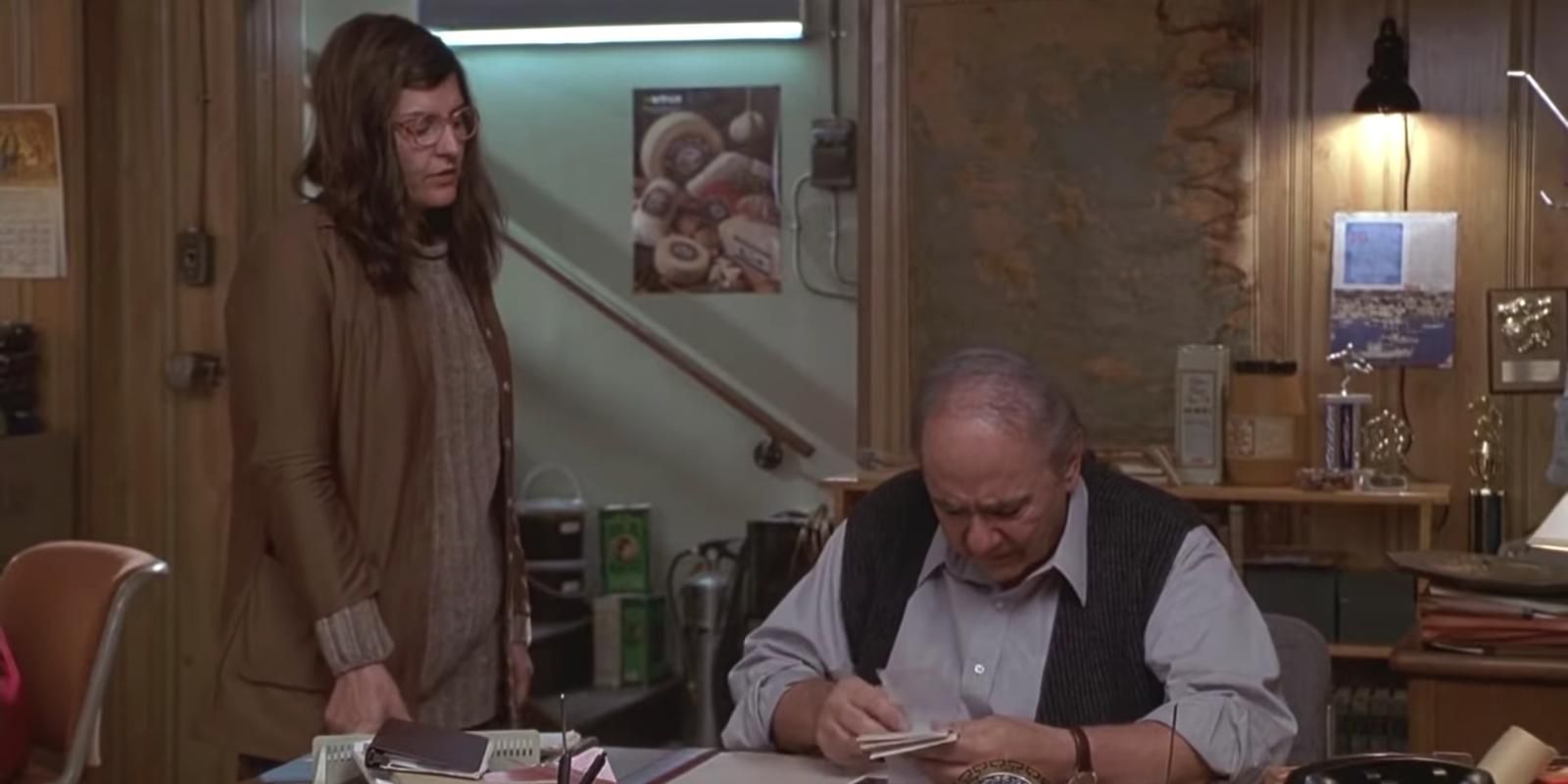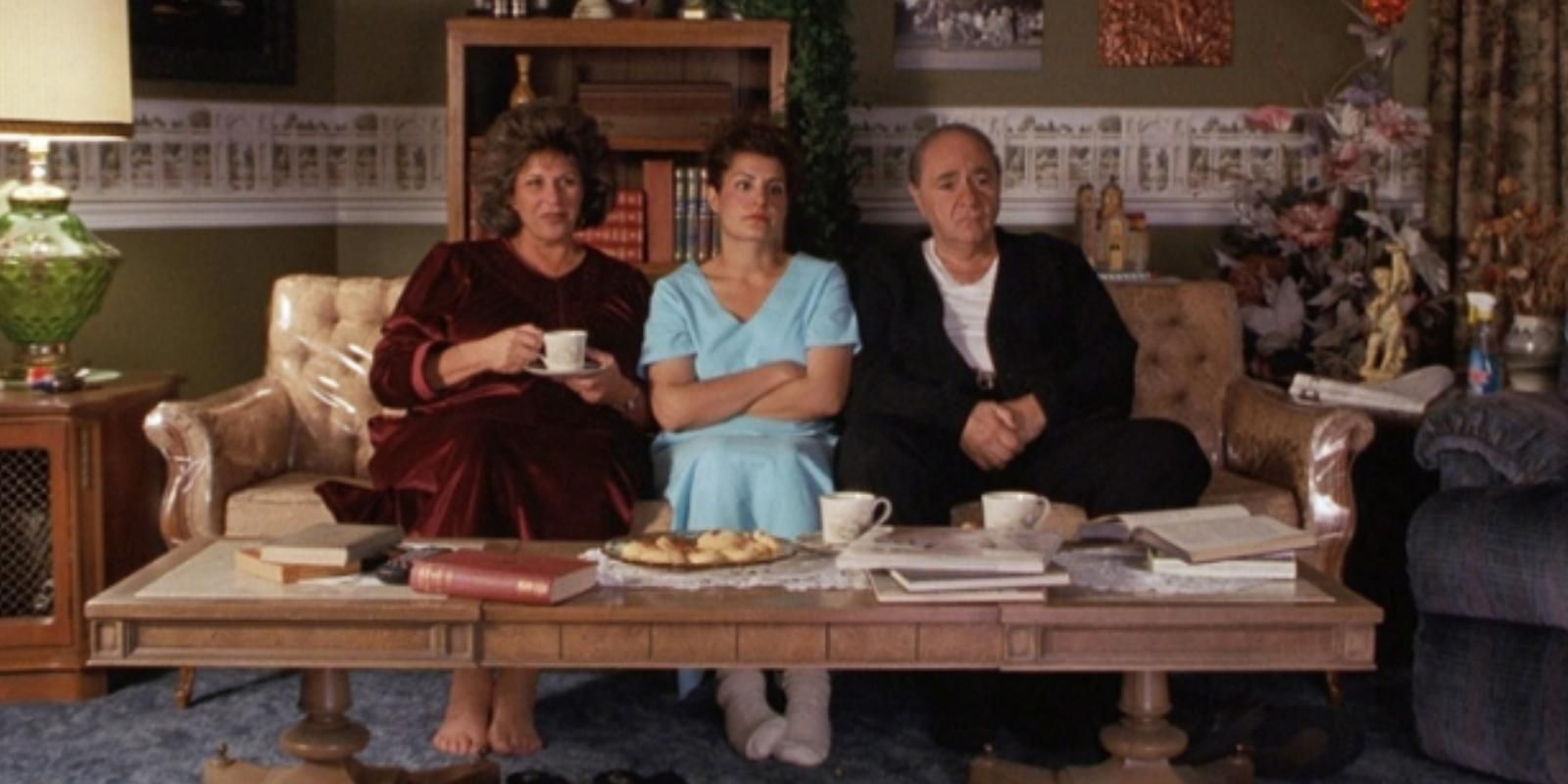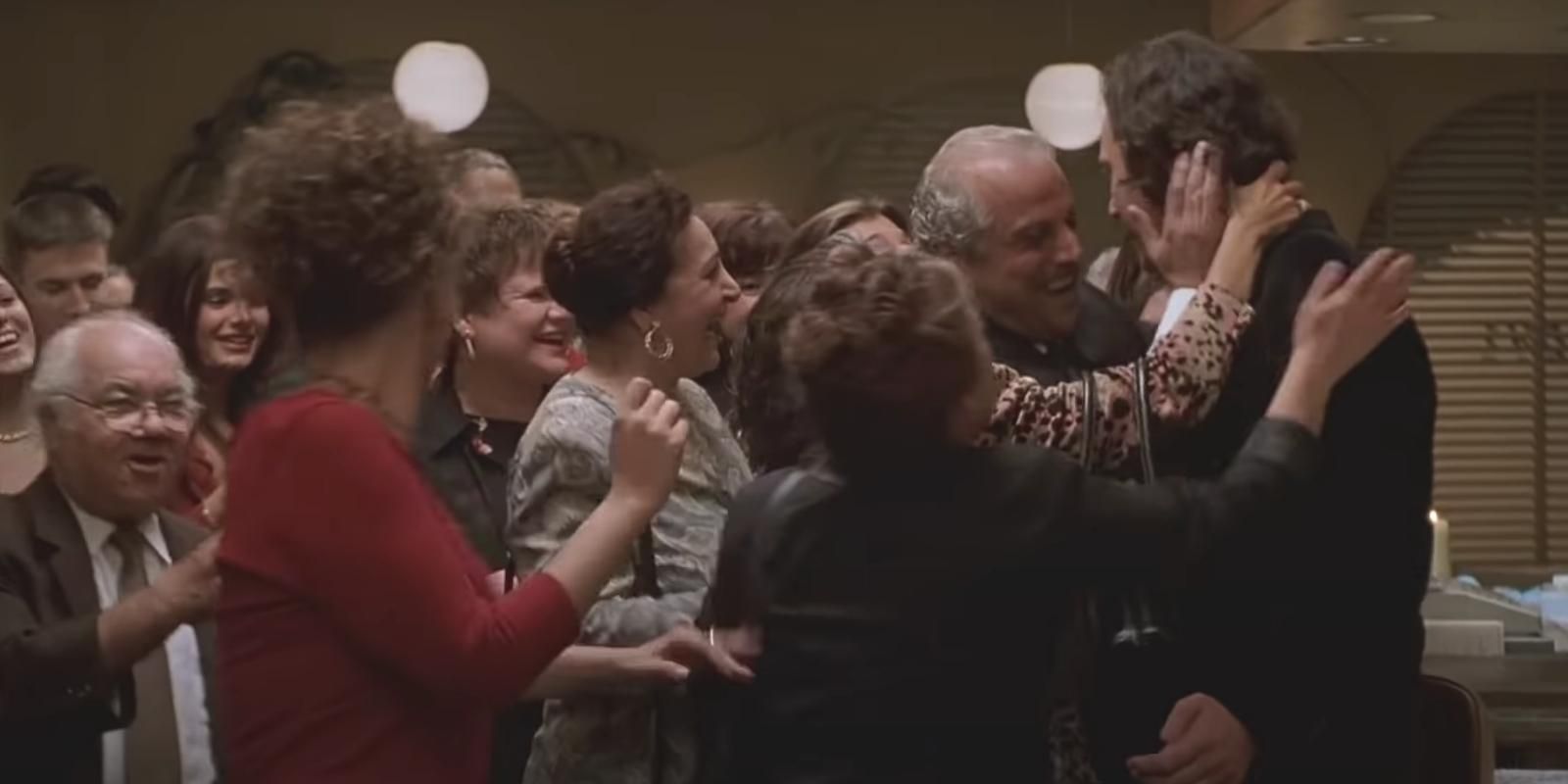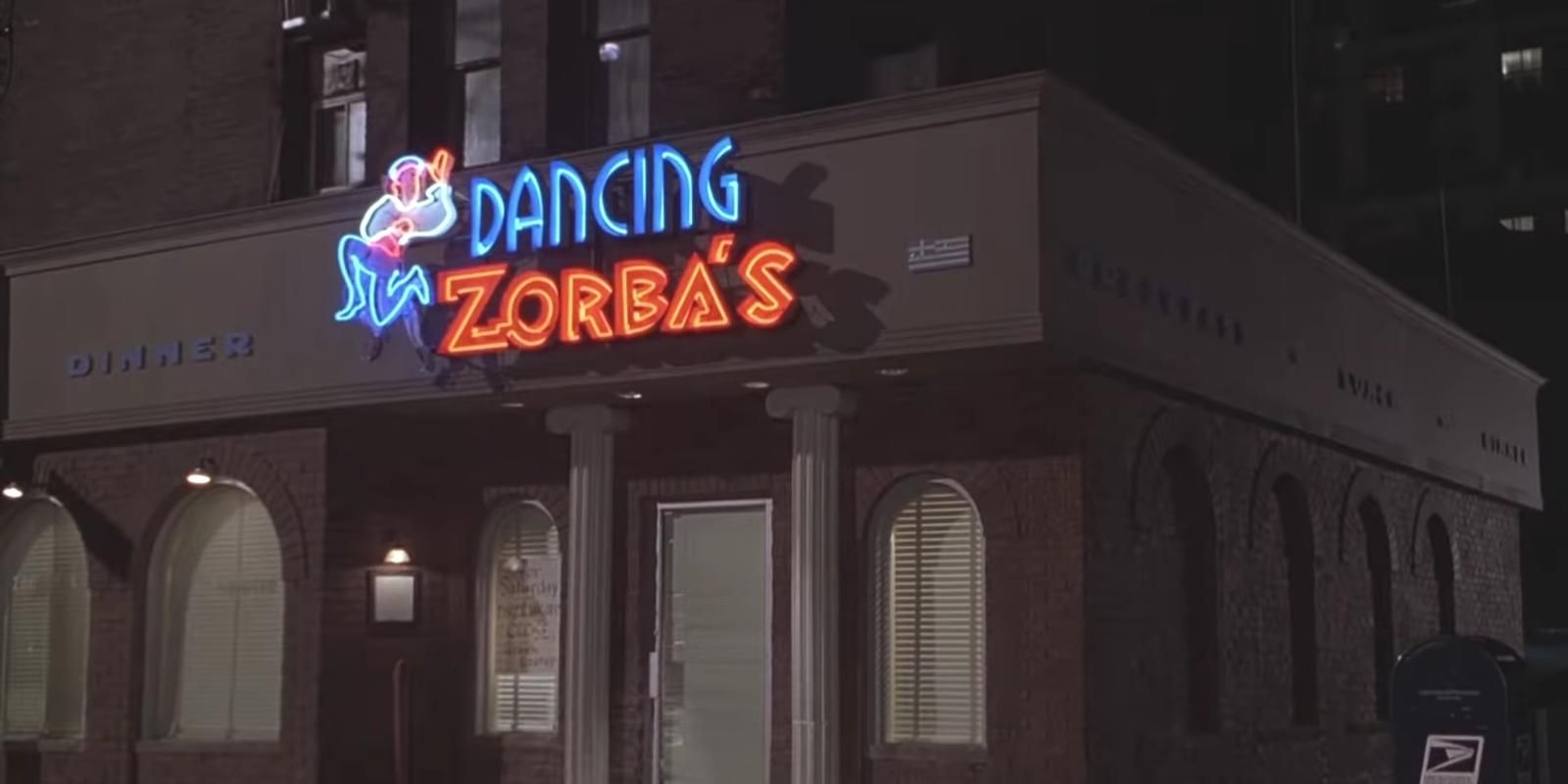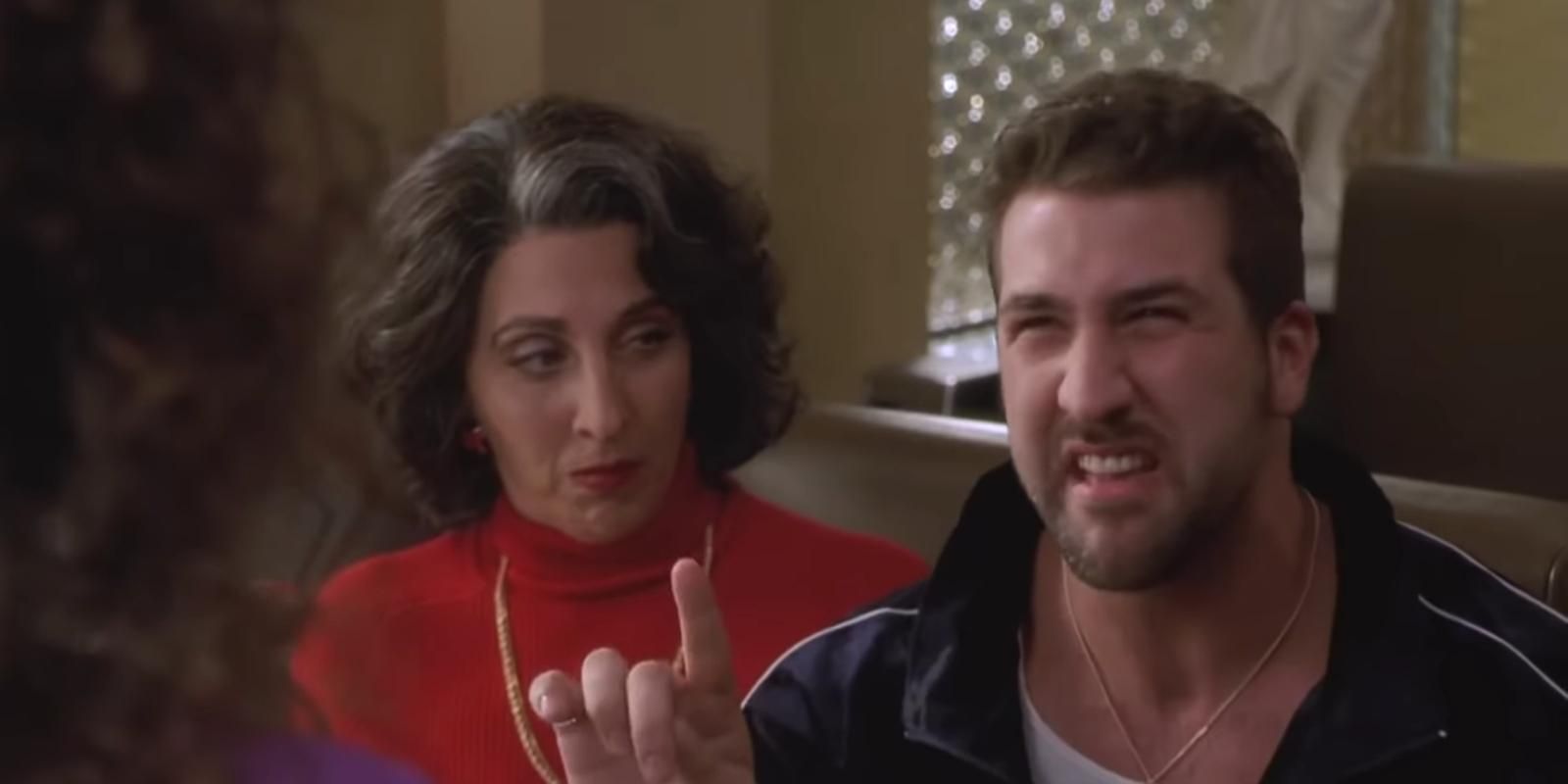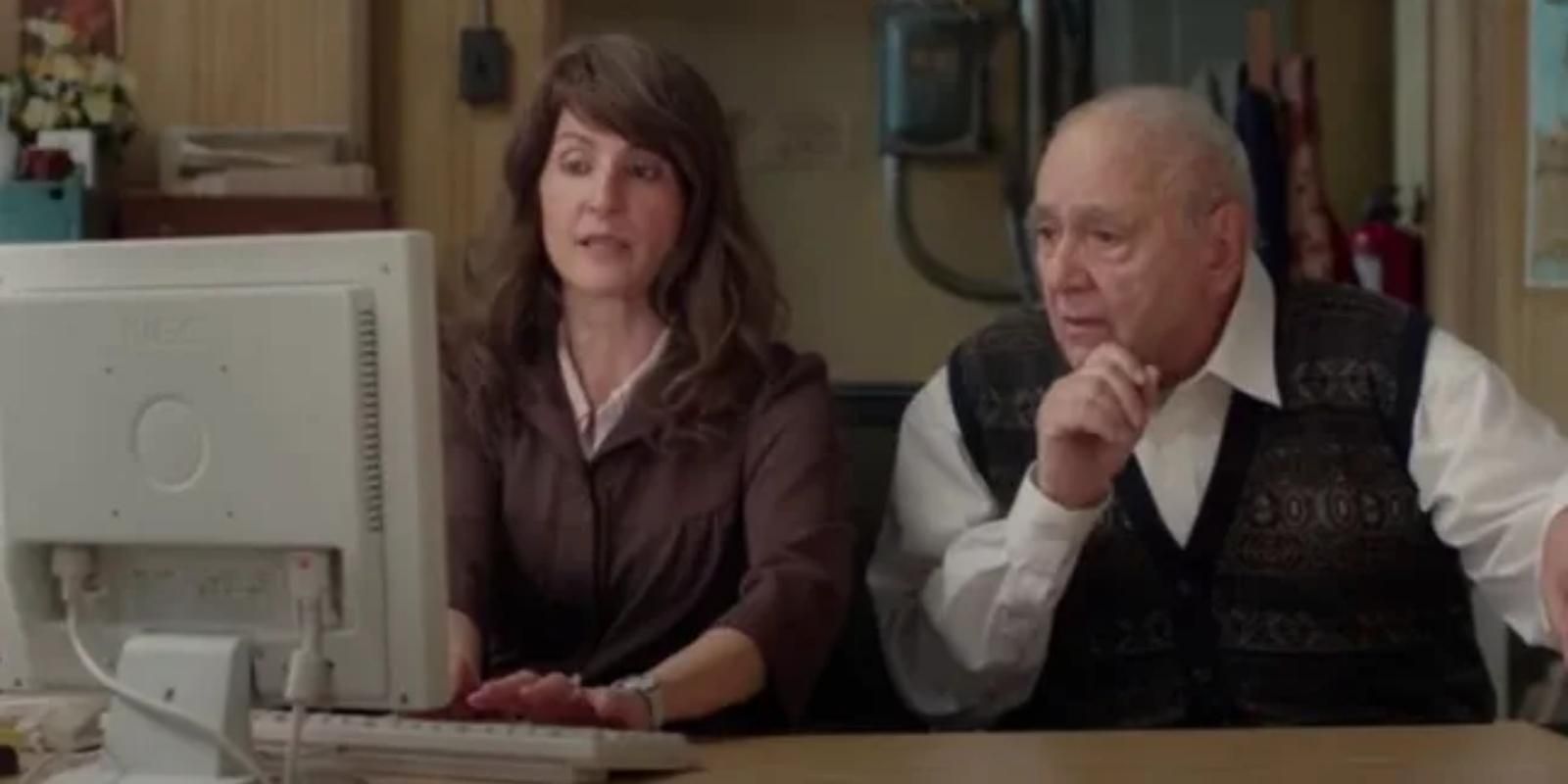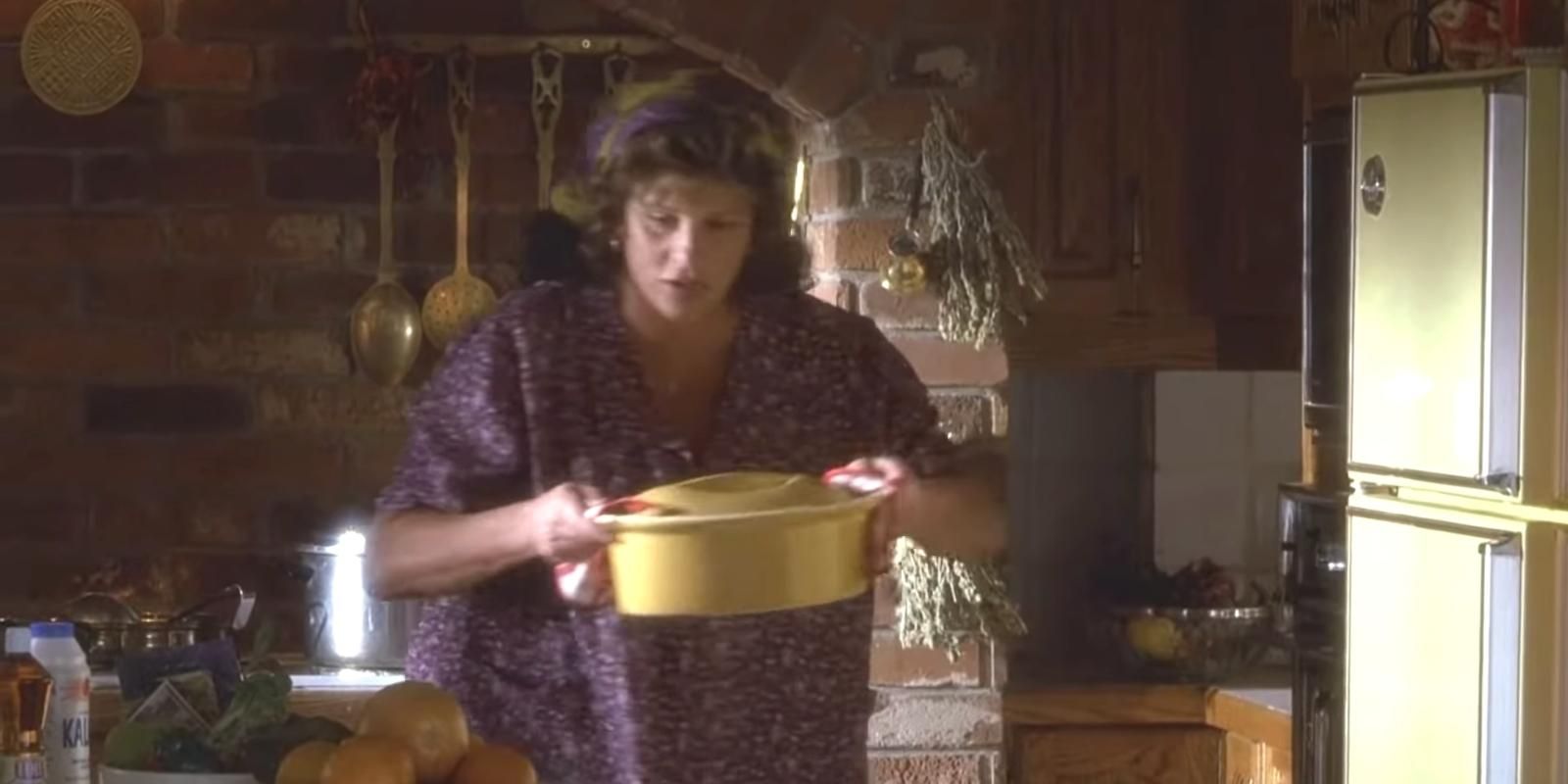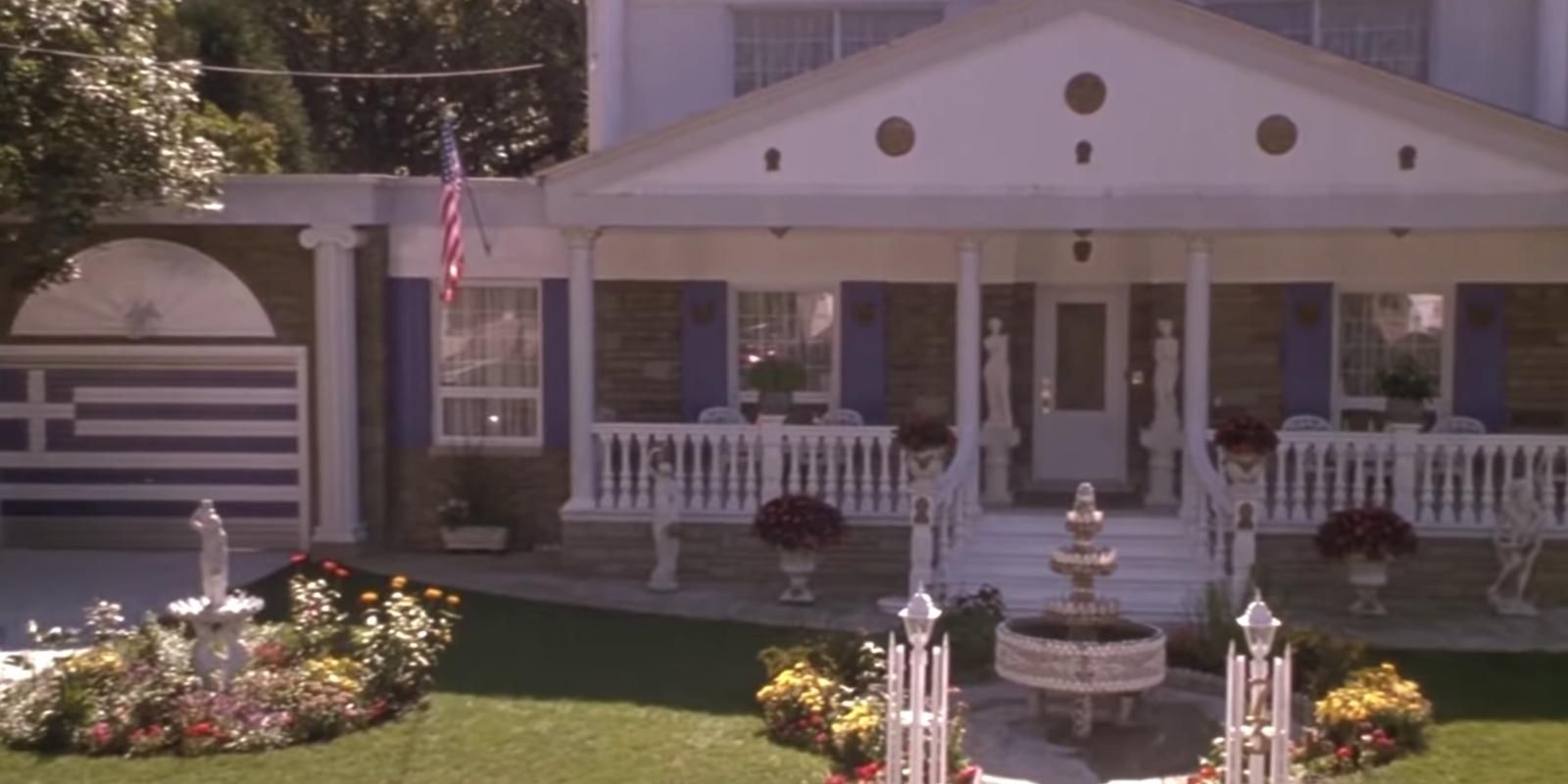My big Greek wedding might technically be a romantic comedy, but the 2002 film is just as much an extremely affectionate and accurate sociological depiction of the daily lives of Greek-Americans. The film strives to incorporate many of the experiences of Greek-Americans, from the rituals of social gatherings to the conflicts that arise between extended family members.
Everywhere, even when it satirizes some of these elements and risks transforming certain characters into stereotypes, My big Greek wedding analyzes Greek-American culture through a completely loving lens. There is no harsh criticism in this film, but rather a warm and inviting depiction of, as Toula says, “the history of our people, the great civilization: the Greeks“.
Greek school as a rite of passage
Language learning is an important part of most American children’s school experience, whether it’s learning the usual Spanish or French, or the less conventional Latin. But for Greek-American children, there is another crucial element of their language learning in their younger years: Greek school, usually held in the Greek Orthodox church their family attends.
My big Greek wedding incorporates it briefly via a quick flashback sequence that embodies the experience. Toula recounts this insight into her childhood: “While the pretty girls went to brownies, I had to go to Greek school. At Greek school, I learned valuable lessons like, “If Nick has one goat and Maria has nine, how soon will they get married?” »
Large family dinners
The family dinner is a major part of many family relationships, whether in real life or in movies and television. Sitcoms and family dramas would barely exist without tense, contentious conversations around the dinner table. But My big Greek wedding shows that while the Greeks have their version of the family dinner, it happens on a much larger scale than most.
When Toula invites Ian’s parents to “meet the family,” she naively expects that to mean having dinner with her parents, and perhaps her brother Nick. Instead, Maria and Gus invite all the brothers, sisters, cousins, nieces, nephews, uncles, aunts, etc., resulting in a real Greek festival right in their backyard, complete with spit-roasted lamb. Many Greek family celebrations take on this magnitude too easily.
The immigrant experience vs. The first generation
Stories that cover intergenerational tensions in parent-child relationships have become increasingly common in recent years. Likewise, the complex relationship between an immigrant parent and a first-generation child continues to be exploited for television and cinema content with great success, regardless of the country of origin.
My big Greek wedding was ahead of the trend when it was released in 2002 and covered the complex father-daughter relationship between Gus and Toula. The struggle between an immigrant parent’s vision for their child’s future and the first-generation child’s rebellion against the limitations their parents impose on them is a situation that Greek-Americans, among many others, grapple with cultures, are still confronted today.
Living with your parents until you get married
A lot coming-of-age movies highlight a main character’s desire to leave the family home as soon as he turns 18. Some of them even have their parents eager to kick them out of the house once the clock strikes midnight on their 18th birthday. In Greek-American culture this is virtually unheard of.
In the Greek world, it is not only common, but almost completely normal, for an adult to live in the family home with their parents (and extended family, such as Toula’s grandmother Yiayia) until their marriage. Plus, once the now-adult children get married, they don’t move very far away – like when Toula and Ian move in next door.
Spit, pinch and kiss
Every culture has its unique social ritual. Many cultures have rituals that go a little too far in terms of respecting someone’s boundaries, especially when they’ve only just met. My big Greek wedding illustrates in detail many of these boundary-pushing rituals.
The adults spit frequently throughout the film to prevent bad thoughts and jealousies from being directed at those they love. When the extended family finally meets Ian, he is mobbed by a sea of Greeks who want to pinch his cheeks and kiss him, either on the face or on the lips, one by one. Any Greek-American reading this probably winced as years of pinched cheeks suddenly came back to mind in vivid detail.
The family restaurant
Family restaurants are the main theme in the stories of many cultures, such as Italian and Chinese. In reality, many families have at least one parent running their restaurant, which becomes a gathering place not only for the family itself, but also for the community at large.
This is especially true for Greek-Americans, a fact that has been emphasized in popular culture since ancient times. Olympia Café on Saturday Night Live has Spawn. Of course, My big Greek wedding highlights the Portokalos family restaurant, named Dancing Zorba’s, which serves as the setting for key moments of family conflict, romantic interests and community-wide celebrations.
The louder the better
It’s almost a stereotype in itself at this point, to portray a particularly “ethnic” culture in film and television as being loud just for the sake of being loud, as is the case in many countries. Italian-American films. The contrast between Toula’s loud and proud Greek family and Ian’s very reserved WASP family speaks for itself in this regard, particularly when the two families finally meet for the first time.
But whether they interact with “outsiders” (or, as Gus calls them, xeno), arguing among themselves or participating in family celebrations in restaurants or on lawns, the Greeks who populate the cast of My big Greek wedding have one volume and one volume only: loud.
Although this story only takes place after My big Greek wedding 2, it is still a unique Greek-American experience that cannot be overlooked. In his older years, Gus becomes convinced that the Portokalos family lineage is a direct descendant of Alexander the Great, the ancient Greek hero of Macedonian origin.
There is no way to prove anyone is directly related, given the thousands of years that have passed and the conflicting reports about the lineage Alexander left behind. But Toula nevertheless conforms to her father’s convictions and creates an ancestry test “proving” their genetic link with Alexandre. Many Greeks who accept their own loved ones’ belief in this belief can completely relate.
Food is a complex love language
As should now be clear, diet plays a major role not only in My big Greek wedding but also in Greek and Greek-American culture as a whole. Families always eat together and older generations show their love for younger generations by preparing sumptuous meals and passing down their recipes from generation to generation.
Toula explains it well at the beginning of the film: “My mother always prepared dishes filled with warmth and wisdom, and never forgot that side dish of burning guilt.“ Family and food go hand in hand, so it’s only natural that the relationship between them is just as complex as the relationship between any family member.
Being Greek is the best thing you can be
It’s a recurring theme throughout My big Greek wedding: There is nothing better a person can be than Greek. Gus says it himself: “Tula, there are two kinds of people: Greeks and everyone who would like to be Greek“.
Gus, in particular, takes pride in listing things that the Greeks were the first culture to do, finding the Greek origins of any word, and reminding everyone that they should be proud of their Greek heritage. Many Greeks and Greek Americans often do the same thing, regardless of the environment they find themselves in. There is no end to Greek pride, which the film captures all too well.


